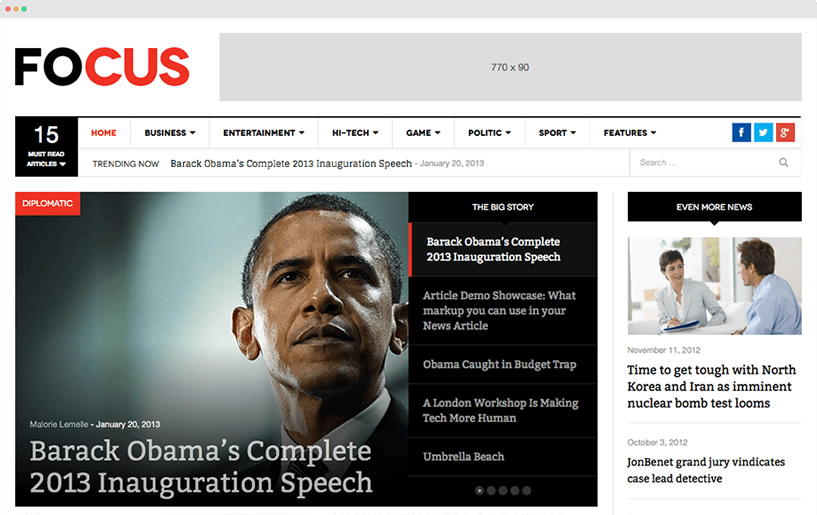Not known Factual Statements About News Websites
Not known Factual Statements About News Websites
Blog Article
How News Websites can Save You Time, Stress, and Money.
Table of ContentsThe 7-Minute Rule for News WebsitesNews Websites - An OverviewOur News Websites IdeasNot known Factual Statements About News Websites Facts About News Websites Revealed
It was down in the UK and Brazil yet up a few other nations, such as Greece, Bulgaria, and Poland (News Websites). This year, for the very first time, we inquired about the various manner ins which individuals prevent the news and found that around half of avoiders (53%) were attempting to do so in a broad-brush or routine means for instance, by shutting off the radio when the news began, or by scrolling past the news in social networksYou stated that you try to proactively avoid news.

I'm most likely choosing to read more light-hearted tales than I utilized to at the moment. M, 51, UK Switching my back on information is the only method I feel I can deal occasionally. I need to consciously make the effort to avert for my very own mental health.
Getting The News Websites To Work
Careful avoidance of Ukraine news was highest possible in most of the nations closest to the conflict, reinforcing findings from our added study in 2015, right after the war had actually begun. Our data may not suggest an absence of passion in Ukraine from nearby nations however instead a need to handle time or secure psychological wellness from the very genuine horrors of war.
Comparing Finland with a politically polarised country such as the United States (see next chart) that is less affected by the war, we find an extremely various pattern of subject evasion. In the United States, we discover that consumers are a lot more most likely to stay clear of topics such as nationwide politics and social justice, where discussions over concerns such as sex, sexuality, and race have become very politicised.
American national politics are rather poisonous nowadays. I locate occasionally that I need to detach from stories that simply make me upset. F, 61, USA For some people, bitter and dissentious political disputes are a reason to shut off information completely, however for some political partisans, avoidance is usually about blocking out point of views you don't intend to hear.

Excitement About News Websites
Some are seeking to make news extra easily accessible for hard-to-reach groups, expanding the information program, appointing more inspiring or favorable news, or accepting constructive or services journalism that offer people a sense of hope or individual firm. In our survey this year, we asked participants about their rate of interest in these various approaches.
This explains why stories like Ukraine or national politics perform well with information regulars yet can at the exact same time transform much less interested users away (News Websites). Careful avoiders are much less curious about all sorts of information than non-avoiders yet in relative terms they do seem to be a lot more curious about favorable or solutions-based news

About News Websites
2023). This may hold true in the moment, yet gradually it seems to be leaving lots of people empty and much less pleased, which may be weakening our connection with and trust in the news. Across markets, overall count on news (40%) and trust in the resources people utilize themselves (46%) are down by an additionally 2 percentage points this year.
Without a doubt, learn this here now through the rear-view mirror, the COVID-19 trust fund bump is plainly noticeable in the adhering to graph, though the direction of traveling afterwards has actually been blended. In many cases (e.g. Finland), the trust fund increase has been kept, while in others the upturn looks more like a blip in a tale of ongoing long-term decline.
Several of the highest possible reported degrees of media criticism are found in countries with greatest degrees of question, such as Greece, the Philippines, the United States, France, and the UK. The most affordable levels of media objection are often in those with higher degrees of trust fund, such as Finland, Norway, Denmark, and Japan.
The Only Guide for News Websites
This year we asked participants regarding their choices for text, sound and video clip when taking in news online. Generally, we locate that the bulk still choose to read the information (57%), instead than watch (30%) or pay attention to it (13%), yet younger people (under-35s) are more most likely to listen (17%) than older groups.
Behind the averages we locate substantial and unusual country distinctions. In markets with a strong analysis custom, such site as Finland and the United Kingdom, around 8 in ten still favor to check out on the internet news, yet in India and Thailand, around 4 in ten (40%) state they choose to watch information online, and in the Philippines that percentage is over fifty percent (52%).
Report this page